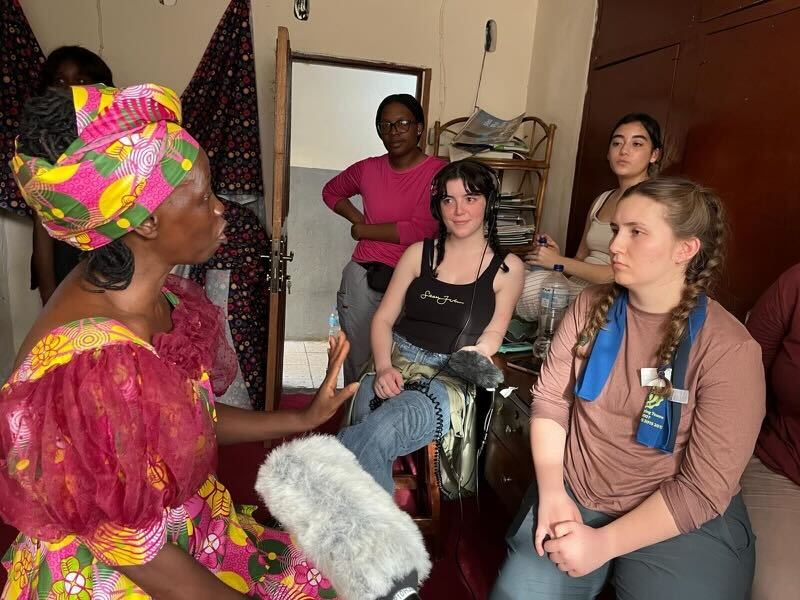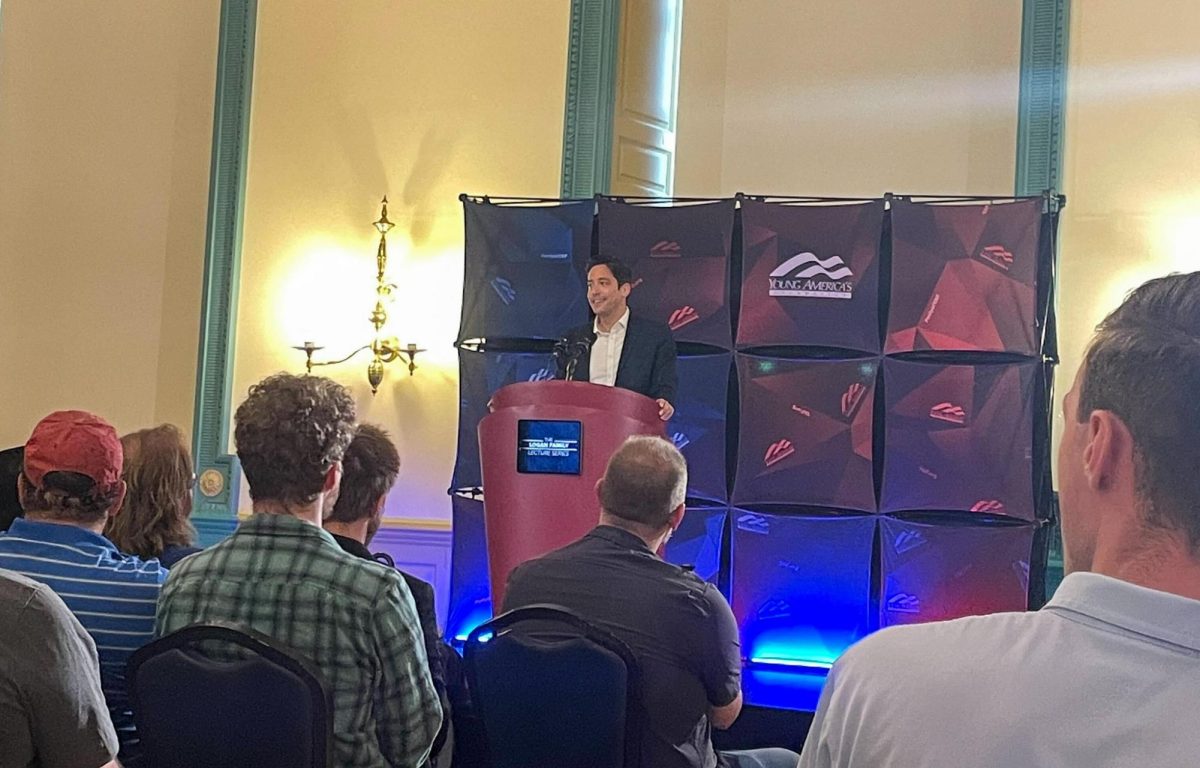A-7063.
That was the number tattooed into Eva Mozes Kor’s arm the first day she arrived in Auschwitz, the number that has served as a constant reminder of her experience throughout her 77 years.
The Holocaust survivor spoke Monday at the Main Library to a crowd of 150 students and community members. Kor’s speech came at the beginning of Holocaust Remembrance Week, which is being observed until May 8.
The speech, titled “From Auschwitz to Forgiveness,” was part of the library’s display of the Forgiveness Project exhibit, which runs until Wednesday. The project is based in the U.K. and aims to change the world through forgiveness.
Kor was 10 years old when she and her family were forced from their small village of Portz, Romania, and taken to the German Nazi death camp in Auschwitz, Poland, in 1944.
Get The Daily Illini in your inbox!
Within 30 minutes of arriving on the train to Auschwitz, Kor and her twin sister Miriam were separated from their mother, father and two older sisters forever.
Kor said she made a silent vow her first night in Auschwitz, after seeing the dead bodies of girls her age.
“I would do everything and anything in my power not to end up dead on the floor,” Kor said.
Because she was a twin, Kor and her sister were subject to medical experimentation by Dr. Josef Mengele and his team. Mengele conducted abusive and often deadly experiments on 1,500 sets of twins.
Liberation came for Kor and her sister on Jan. 27, 1945, when Soviet Troops found about 200 children alive in the camp.
“It was the first day we realized we were free, we were alive, that we had triumphed over an unbelievable evil,” Kor said.
Kor then moved on to the lessons she learned from her experiences. Her first lesson was to “never ever give up.” That was the only thing that kept her alive through her months spent in Auschwitz, she said.
Her second lesson was about prejudice. Prejudice, she said, is what caused her and millions of others to suffer.
The most important lesson, Kor said, is forgiveness. In 1993, she got in contact with Dr. Hans Munch, a doctor on Mengele’s team in Auschwitz.
Munch told Kor about the process of the gas chambers in Auschwitz, a story that had never been confirmed by a Nazi before. Kor and Munch worked together to publicize the information. Through this experience, she learned to forgive Munch, Mengele and the Nazis, which changed her life, she said.
“I was no longer a victim of Auschwitz; I was no longer a victim of my tragic past,” Kor said.
In 1995, Kor opened the CANDLES Holocaust Museum and Education Center in Terre Haute, Ind.
Adrian Sommer, senior in engineering, went to Kor’s speech to hear her unique story of survival.
“As a Jewish student, I want to have the opportunity to talk to Holocaust survivors before they are gone,” Sommer said.
Mahomet resident John Jennings said he was inspired by Kor’s story.
“Eva Kor put forgiveness in human terms,” Jennings said. “If we could all practice what she did, the world would be a better place.”









